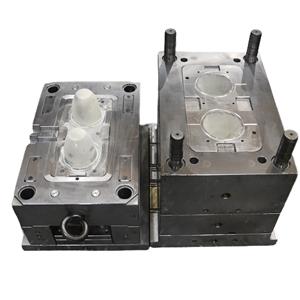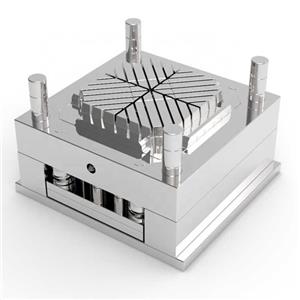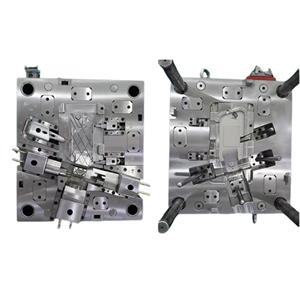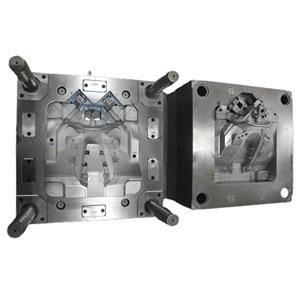Advanced Medical Prototype Injection Molding Services
The development of innovative medical devices hinges on rapid prototyping and efficient manufacturing. This is where advanced medical prototype injection molding services become indispensable. The ability to quickly and cost-effectively create functional prototypes is crucial for testing designs, verifying functionalities, and ultimately bringing life-saving innovations to market faster. Without access to these specialized services, the medical device development process would be significantly hampered, leading to longer timelines, increased costs, and potentially delayed patient access to critical technologies. This article will delve into the multifaceted nature of advanced medical prototype injection molding services, exploring their importance, capabilities, and the benefits they offer to medical device companies.
Material Selection and Compatibility
One of the most critical aspects of advanced medical prototype injection molding services lies in the careful selection of materials. The chosen material must not only meet the specific performance requirements of the device but also adhere to stringent biocompatibility standards. These standards, defined by regulatory bodies like the FDA, ensure that the material will not cause adverse reactions or harm when in contact with the human body. Service providers specializing in medical device prototyping offer a wide range of biocompatible polymers, including those that are sterilizable, durable, and chemically inert. This material selection process is often a collaborative effort between the client and the service provider, ensuring the final prototype accurately reflects the intended clinical application.
The selection also considers factors beyond mere biocompatibility. Mechanical properties like strength, flexibility, and fatigue resistance are crucial for ensuring the prototype functions correctly under realistic conditions. Considerations around transparency for visual inspection, or specific surface finishes to optimize interaction with bodily fluids, further complicate the material choice. Advanced service providers leverage their expertise in polymer science to guide clients in choosing the optimal material that balances all the necessary requirements, thus ensuring the prototype accurately reflects the final product's performance characteristics.
Precision and Accuracy in Molding
The precision and accuracy achieved during the injection molding process are paramount for successful prototyping. Medical devices often feature intricate geometries, tight tolerances, and complex internal features. Advanced services utilize high-precision molding machines capable of achieving micro-level accuracy. This ensures the prototype faithfully reproduces the design specifications, allowing for accurate testing and validation of the device's functionality. Any deviation from the design can significantly impact the device’s performance or even its safety, highlighting the need for precise molding techniques.
Furthermore, advanced services often incorporate quality control measures at every stage of the process. This may include meticulous inspection of the molds themselves, rigorous monitoring of injection parameters, and detailed quality assessments of the molded parts. These procedures ensure that defects are identified and rectified early on, preventing wasted time and resources later in the development cycle. Advanced technologies, such as in-line vision systems and automated inspection processes, further enhance the overall precision and reliability of the prototyping process.
Rapid Prototyping Capabilities
The speed at which prototypes can be produced is a key differentiator for advanced medical prototype injection molding services. Rapid prototyping is crucial in the medical device industry, where time-to-market can significantly influence the success of a product. Advanced service providers leverage streamlined processes, efficient workflows, and state-of-the-art equipment to minimize lead times. This allows medical device companies to rapidly iterate designs, test various prototypes, and quickly identify potential issues before committing to large-scale manufacturing.
This rapid turnaround time is achieved through optimized processes that involve close collaboration between the client and the service provider. From initial design discussions to final prototype delivery, clear communication and a streamlined workflow ensure efficient progress. Moreover, many advanced service providers offer services such as design for manufacturability (DFM) analysis, helping to refine designs to optimize the injection molding process and reduce lead times further. This proactive approach to design optimization ensures not only faster prototyping but also a smoother transition to mass production.
Sterilization and Regulatory Compliance
Medical devices must be sterilized before clinical use, and advanced medical prototype injection molding services frequently incorporate sterilization considerations into the prototyping process. This ensures that the prototype can undergo the same sterilization processes as the final product, allowing for accurate testing of the device’s performance and structural integrity after sterilization. Service providers often have expertise in various sterilization methods, such as gamma irradiation, ethylene oxide sterilization, or steam sterilization, and can guide clients in selecting the appropriate method for their particular device.
Regulatory compliance is paramount in the medical device industry, and advanced services ensure that prototypes adhere to relevant regulations. This includes compliance with standards set by organizations such as the FDA and ISO. Service providers with established quality management systems (QMS) in place, often certified to ISO 13485, are well-equipped to handle the necessary documentation and traceability requirements throughout the prototyping process, ensuring regulatory compliance from the outset and significantly reducing the risk of delays during the final product approval process.
In conclusion, advanced medical prototype injection molding services are a critical component of the medical device development pipeline. Their capabilities in material selection, precision molding, rapid prototyping, and regulatory compliance enable medical device companies to develop innovative, safe, and effective products efficiently, ultimately accelerating the delivery of life-saving technologies to patients.




